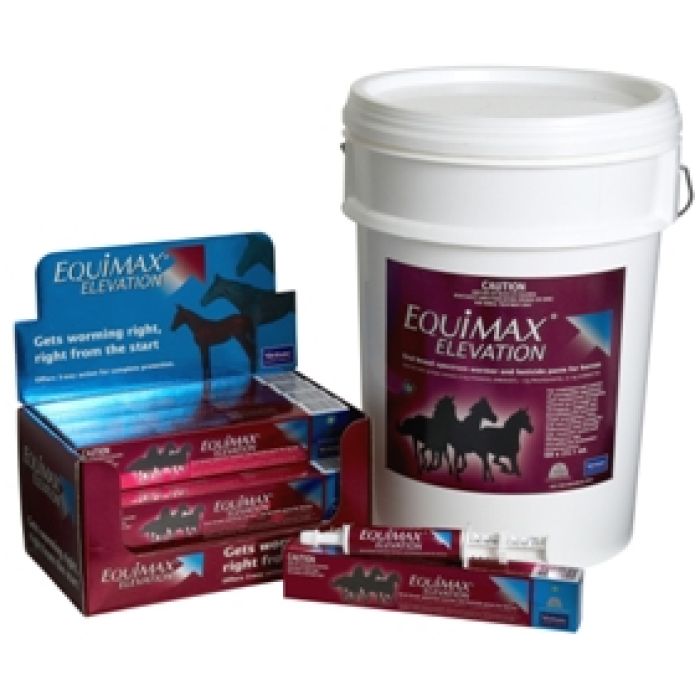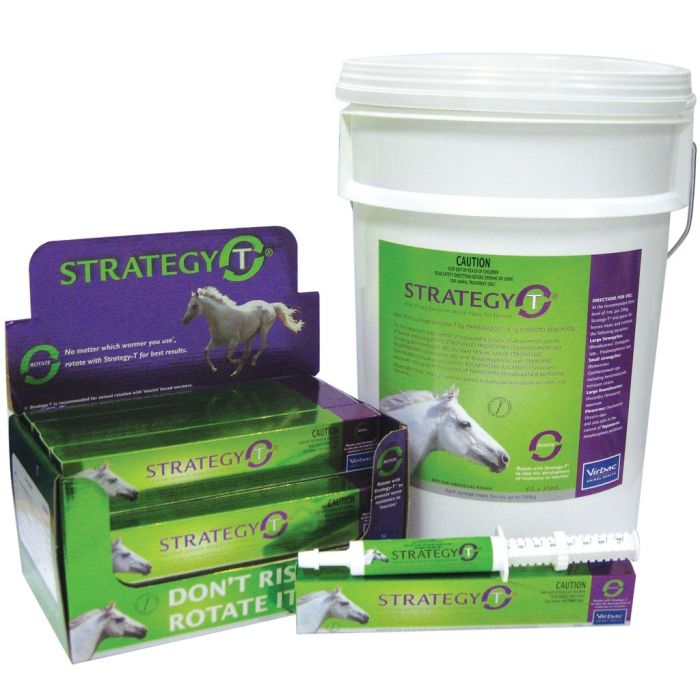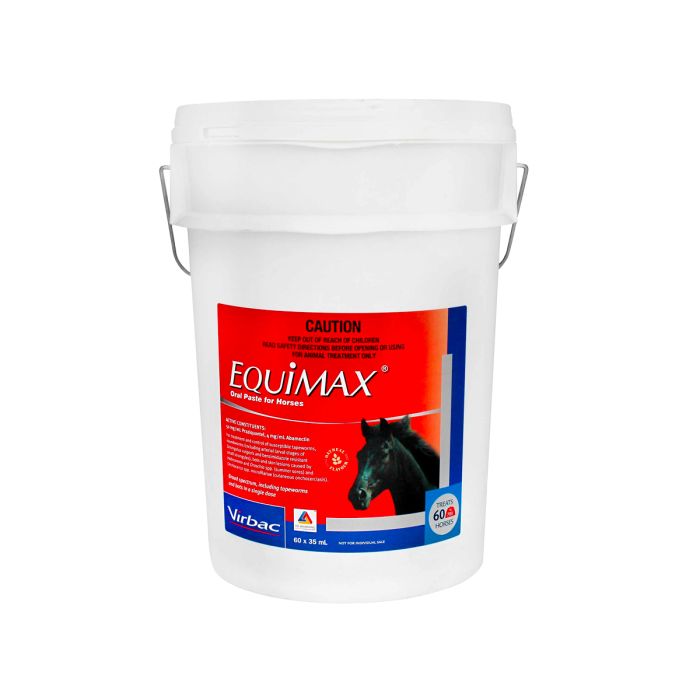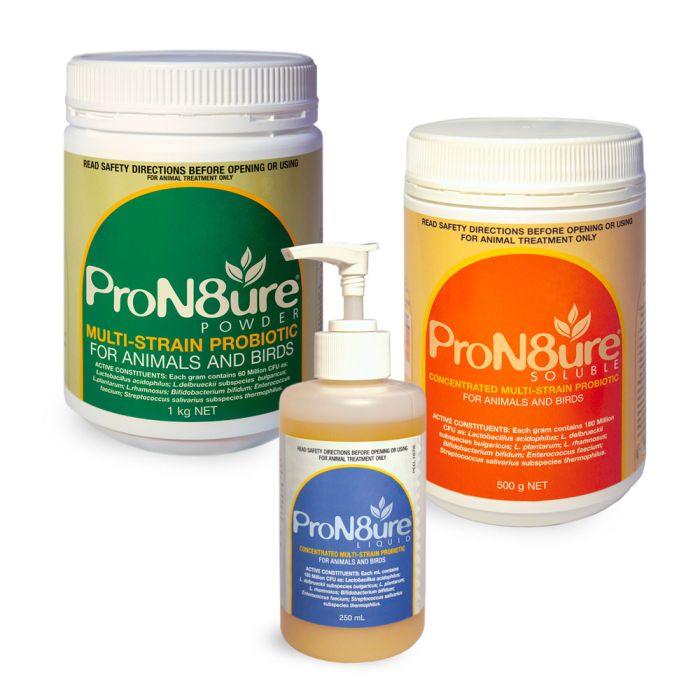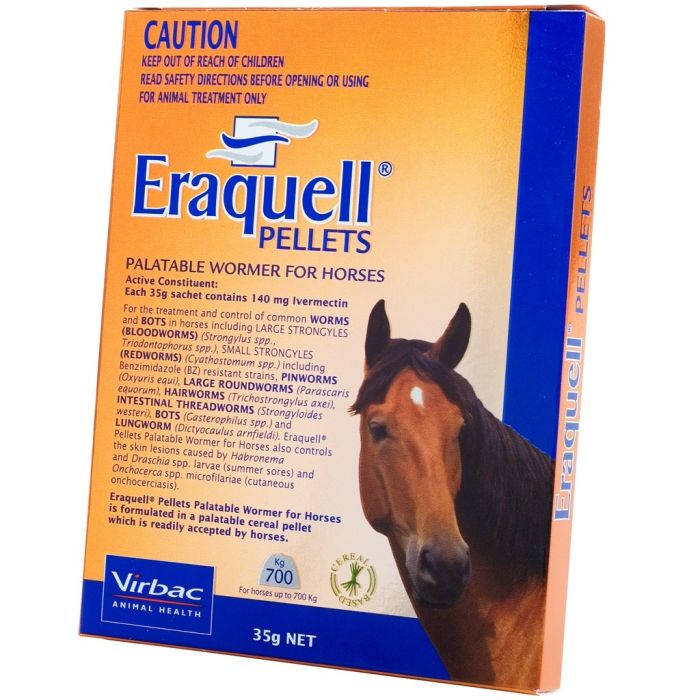Equimax Elevation 23.1mL
VIR-6082
- Buy 15 for $28.95 each and save 3%
Equimax Elevation is unlike any other wormer on the market.A unique formulation of three active ingredients designed to combat mectin resistance, Equimax Elevation is particularly suitable for worming young horses from 6 weeks to 2 years.
Equimax Elevation
23.1mL
Virbac
Equimax Elevation is a Broad-spectrum worming paste that is up to 100% effective in treating all major internal parasites in horses including:
• Large strongyles (Strongylus vulgaris, Strongylus edentatus, Strongylus equinus and Triodontophorus spp.)
• Small strongyles including benzimidazole resistant strains (Cyathostomum spp., Cylicocyclus spp., Cylicostephanus spp., Cylicodontophorus spp., Gyalocephalus spp.)
• Ascarids (Parascaris equorum)
• Pinworms (Oxyuris equi)
• Hairworms (Trichostrongylus axei)
• Large mouthed stomach worms (Habronema muscae)
• Lungworms (Dictyocaulus arnfieldi)
• Neck and intestinal threadworms (Onchocerca spp., Strongyloides westeri)
• All three species of tapeworms (Anoplocephala perfoliata, Anoplocephala magna, Paranoplocephala mammillana)
• All three species of bots (Gasterophilus spp.)
Equimax Elevation also controls:
• Skin lesions caused by Habronema and Draschia spp.
• Cutaneous larvae (summer sores) Onchocerca spp. Microfilariae
Equimax Elevation has a double action against nematodes and tapeworms due to the combination of the three actives ivermectin, praziquantel and pyrantel. Additionally, the double action is considered to delay the onset of resistance to either anthelminitic.
Also controls:
Skin lesions caused by Habronema and Draschia spp. Cutaneous larvae (summer sores) Onchocerca spp. Microfilariae
COMPOSITION:
Each Equimax Elevation 23.1mL syringe contains:
|
Ivermectin |
0.14g |
|
Praziquantel |
1.0g |
|
Pyrantel |
9.0g |
DOSAGE:
Dose at 3.3mL per 100kg bodyweight.
Each syringe of Equimax Elevation treats a horse up to 700kg.
Worming intervals
How often horses are wormed depends on the property’s management system. It is ideal to use the minimum number of treatments possible in a year, as over worming can lead to resistance.
Depending on a number of factors, some horse owners will need to worm more often than others. Where there are large numbers of horses kept close together and/or horses are frequently moving on and off a property, there will be a greater need for worm control. This is because these horses will be at the greatest risk of contamination. Horses in these situations, generally on studs or agistment properties, will need to be wormed every six to eight weeks. It may be possible, where there are low stocking densities, to worm horses less often. The use of paddock management procedures like manure removal, paddock rotation and grazing with other species will also help lower contamination pressure.
All horses should be wormed at least once every 3 months regardless of the conditions in which they are kept. All horses on a property should be wormed at the same time. New horses should be quarantined and wormed before coming onto the property. If you are unsure about what drenching interval is right for your situation please consult your vet or local Virbac area manager.
Rotation
It is recommended to practise rotation of wormers to help prevent or slow the development of resistance. Products should be rotated yearly with one active being used for an entire year and then switching to a different active for the next year. Strategy-T Allwormer for Horses and Equimax LV contain completely different actives so make excellent rotation partners. During a Strategy-T year, Equimax LV needs to be included twice, as Strategy-T does not treat bots. Bots must be treated at the end of autumn and the beginning of spring.
Treatment of mares and foals
Equimax LV is safe to use in pregnant and lactating mares as well as young foals. Pregnant mares should be treated as normal during their pregnancy taking care not to stress them during treatment. Mares should be wormed two weeks prior to their expected foaling date. Once a mare has foaled the mare and foal should both be wormed starting from when the foal is six weeks old.
Young horses need to be treated differently to older horses because they are at risk of mectin resistant ascarids. Ascarids appear to be the worm developing resistance to mectins. Generally ascarids are not found in horses over two years of age as horses seem to develop a natural immunity to these worms as they mature. Horses under two should be wormed every six weeks with Equimax Elevation.
Once a horse turns two they should be then put on the Equimax LV / Strategy-T rotation program, however Equimax Elevation is safe to use in horses of all ages if you wish to.
You may also like
Womens Rock 47 Jean - Mae - WJX62BD - Sz 27 Only
Wrangler Womens Premium Patch Booty Up Sits Above Hip Jean - 10MWZGL
Equimax Stable Pail
ProN8ure - Multi Strain Probiotic (Formerly Protexin)
Starting at $17.95 $22.20

